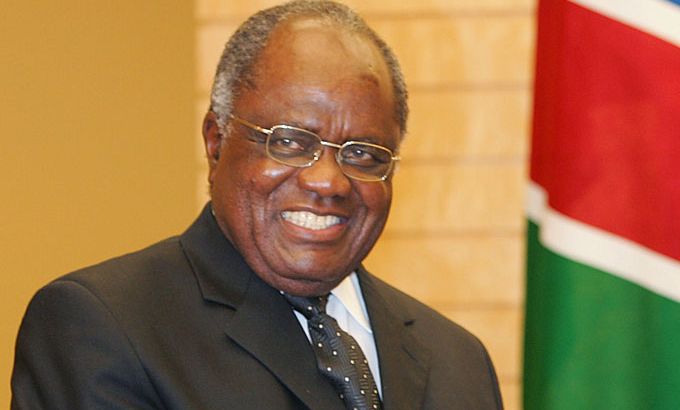
Pohamba: Namibia at the crossroads
The president discusses plans to deal with growing discontent in a country that has enjoyed peace since independence.
Namibia is a country that rarely makes the international headlines. It is also one of the most sparsely-populated places on earth.
Named after the vast Namib desert the country is a place that has been controlled by two different foreign powers in the last century.
Until World War I it was a German colony, a period marked by repression and the genocide of thousands of tribesmen who were driven into the desert where they starved. Then neighbouring South Africa took control and imposed its apartheid system.
Namibia is now a post-colonial, post-conflict nation facing many of the same problems as its neighbours.
So far it has maintained the domestic peace and many things are going well. On the global corruption index, Namibia ranks lower than many other countries in Africa. Tourism is growing, but balancing the environmental impact is a challenge.
But in a country that is extremely rich in mineral resources there is great inequality. Many of the big landowners are white, and the black population is increasingly angry about this situation. So the president says the white population must give up land or possibly face a revolution.
In the 22 years since independence Namibia has been run by just one party, SWAPO, the same organisation that led the guerrilla war for independence.
Its leader, Hifikepunye Lucas Pohamba, who is also the Namibian president, discussed with Talk to Al Jazeera how the country has managed to remain so peaceful, and how he intends to deal with the underlying anger and growing discontent in his country.
|
“A conference on the land suggested that those who have plenty of land they should sell it to the government. And we tried to get the land from them, but unfortunateky there is reluctance. Something else has to be tried. We are not talking about confiscation, we are talking about them to sell the land to the government in order for the government to distribute the land to – I don’t like to use the word black – but to those who were formally disadvantaged by the situation. For the last 20 years we have been appealing to them, that please let’s consider ourselves irrespective of our colour. As one people, as Namibians and if a Namibian is suffering, let’s all sympathise with him. Here we have hundreds if not thousands of Namibian people who have no land and therefore are suffering …. We have the policy of willing seller, willing buyer, that has not been working for the last 22 years and I think something has to be done to amend the constitution so that the government is allowed to buy the land for the people. Otherwise, if we don’t do that we will face a revolution. And if the revolution comes, the land will be taken over by the revolutionaries. Inequality exists … people are not happy and when you talk about people not happy what do you expect? They can react. And when they react, then those who have the land will not have the land, people will take over the land.” Hifikepunye Lucas Pohamba, Namibia’s president |
 | Talk to Al Jazeera can be seen each week at the following times GMT: Saturday: 0430; Sunday: 0830, 1930; and Monday: 1430. |